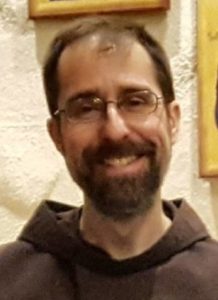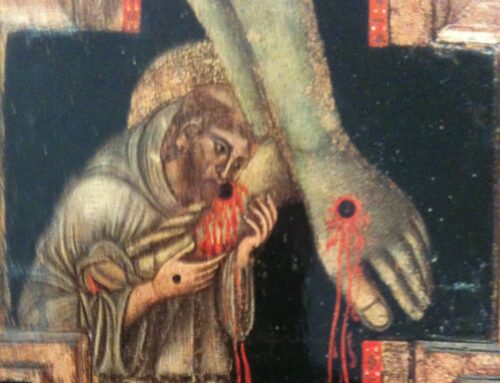(This article original appeared in the Winter 2021 TAU-USA Issue 102)
By Fr. Jerome Wolbert, OFM, CSNA

Fr. Jerome Wolbert, OFM, CNSA President
I don’t remember hearing about abortion until it was brought up for discussion in my high school English class. Abortion remains a hot topic after all these years, in spite of several commentators claiming decades ago that other issues would squeeze it out, but it still gets modest attention in many elections. Over my years as a priest, I’ve heard several confessions from women and a few from men, about how their choice for abortion has hurt their lives. As long as abortion is with us, it will continue to affect us.
My parents did an end-run around the public schools’ family life education, which started in fifth grade. When each of us reached fourth grade, Mom took my sisters, and Dad took my brothers and me to the local museum, where father-son and mother- daughter classes learned about human physiology and development. Our entire family watched the development of the child from conception to birth on NOVA on PBS. We were watching the rerun when our grandparents were watching us. My grandmother entered the room just as the mother was giving birth. Her reaction: “What would your parents say if they knew you were watching this?” “Well,” we said, “they already saw it with us.” Seeing the development of a child a stage at a time pulls back the curtain from the mystery of pregnancy and makes it just “common sense” that there is a child developing inside the mother. There is no magic point of a “formless blob” suddenly becoming “a human being.”
When my high school English teacher brought up the topic for discussion, I was relieved to find out that the Church already acknowledged that abortion is the taking of human life. I was relieved that the Church was on the side of what, to my eyes, was clearly science.
There are many scientists who would frame things differently. But the simple, direct view of the development of a child in the womb is so powerful that many women leaning toward an abortion choose differently when they see an ultrasound.
Only three of us in that class thought abortion was at all questionable. The simple, direct proclamation of a woman’s so-called “right to choose” is so powerful that it affects how people today interpret even the photography that clearly demonstrates there is a growing being. We learn how to interpret who is favorable or beautiful or trustworthy in part from those around us and the way they interpret and interact with others.
The Secular Franciscan Rule tells us to “be in the forefront in promoting justice by the testimony of [our] human lives and [our] courageous initiatives. Especially in the field of public life, [we] should make definite choices in harmony with [our] faith.” (15)
Our public role extends far beyond the voting booth. My parents’ direct and respectful approach to human life and development had a profound and lasting impact on me. Everything has a proper name, can be discussed with respect and without fear or shame. We can have a great impact when we deal openly, honestly, and without fear about every topic with each person.
For your reflection: What has helped form your Gospel-centered approach to engaging in public life? Is there a challenge you still need to take up? How do you pray about this? What kind of choices do you make that are contrary to social norms but in harmony with our faith?



Leave A Comment